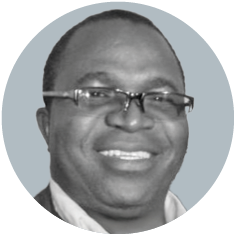Comment
Arguing with the government
By Raphael Mweninguwe
President Mutharika won praise from donors and NGOs for his first five-year term from 2004 to 2009. Now, however, they accuse him of
– failure to uphold the rule of law,
– abuses of human rights and
– failure to hold local government elections.
There are several concerns relating to civil liberties. Last year, two gay men were sentenced to 14 years of hard labour because of their sexual orientation. They were only freed because of international pressure. UN Secretary-General Ban Ki-moon even came to Malawi on their behalf. Plans for new media legislation that would allow the government to ban critical newspapers are similarly considered troublesome.
Malawi has not held local government elections for a decade, and they were recently postponed again, as happened twice before. They were scheduled for April this year, but the president suspended the Malawi Electoral Commission (MEC) because of corruption allegations, so no election was possible. Mutharika’s administration, moreover, amended the constitution, allowing the president to determine the dates for local elections. Observers believe that he shied from the polls because he knew that support for his Democratic Progressive Party (DPP) has dwindled. He does not want to be humiliated by the voters.
Many Malawians, moreover, feel frustrated with the way the economy is run. They consider Mutharika’s second term a failure. The opposition parties, on the other hand, look weak and suffer from in-fighting. The DPP dominates parliament, and the opposition accuses the president of autocratic tendencies.
At the moment, the strongest opposition to Mutharika is probably the CABS group of donors. CABS stands for Common Approach to Budgetary Support. CABS is made up of the European Union, the United Kingdom, Germany, Norway, the African Development Bank and the World Bank. This group funds more than 40 % of Malawi’s national budget.
At the end of March, the government and the donors held an economic review meeting in Lilongwe, the country’s capital. Alexander Baum, who heads the EU mission in Malawi and is also the current CABS chairperson, said the donor group acknowledged past efforts of the government to improve governance, but a lot more needed to be done. Donors consider local elections especially important since the quality of governance is decisive for the success of developmental programmes.
The CABS donors, moreover, are frustrated because the government failed to finalise the Malawi Growth and Development Strategy 2 (MGDS2) by December last year. This document was supposed to spell out government policies and serve as the basis for future budget support.
The CABS donors are threatening to withhold funds. Individual members of the group – Germany, for instance – have already reduced their contributions.
This is not a new phenomenon. There have been other cases in the past when donors withheld aid money in order to put pressure on Malawian administrations. In the short run, such steps aggravated economic hardship for Malawi’s people, but in the long run, they helped to introduce and safeguard democratic principles.
Malawian NGOs, therefore, welcome the CABS warning that donors will withdraw aid unless the performance of Malawi’s government improves, for instance on issues such as the rule of law, press freedom and respect of human rights. Leaders of the United Democratic Front (UDF), one of the major opposition parties, say that the withdrawal of funds will hurt the people as well as the re-election chances of the DPP. Mutharika himself cannot run again – unless his party changes the constitution, which only allows a president two terms.
No doubt, Mutharika and his cabinet are sensitive to donor pressure. This method has worked in the past, and it will work again. It may not happen fast, but it will. So far, there still is no date for local elections, but Mutharika has enabled the Electoral Commission to resume its work again. The alternative to accepting donor demands would be to establish a ruinous dictatorship and fast exacerbate economic misery.








